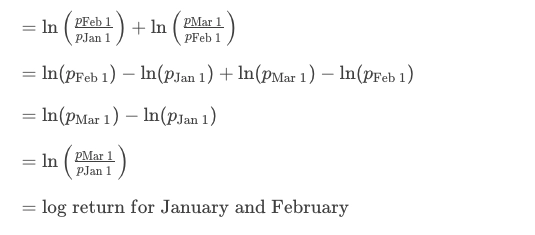Investing money is the process of putting your money to work for you, by buying assets that can generate income or appreciate in value over time. Investing money can help you achieve your financial goals, such as saving for retirement, buying a house, or starting a business. However, investing money also involves risks, such as losing some or all of your money, or not earning enough returns to beat inflation or taxes. Therefore, it is important to know what is the best way to invest money, depending on your situation, preferences, and objectives.
There is no one-size-fits-all answer to what is the best way to invest money, as different investors have different needs, expectations, and risk tolerances. However, there are some general principles and guidelines that can help you make smart and informed investment decisions. Here are some of them:
1. Define your goals and time horizon
Before you start investing money, you should have a clear idea of why you are investing, what you want to achieve, and how long you are willing to wait. Your goals and time horizon will determine how much money you need to invest, how much risk you can take, and what kind of investments you should choose. For example, if you are saving for a short-term goal, such as a vacation or an emergency fund, you may want to invest in low-risk and liquid assets, such as savings accounts, money market funds, or certificates of deposit (CDs). On the other hand, if you are saving for a long-term goal, such as retirement or education, you may want to invest in higher-risk and higher-return assets, such as stocks, bonds, or mutual funds.
2. Diversify your portfolio
Diversification is the practice of spreading your money across different types of investments, such as stocks, bonds, cash, real estate, commodities, and more. Diversification can help you reduce your overall risk, as different investments tend to perform differently in different market conditions. For example, when stocks are falling, bonds may be rising, or vice versa. By diversifying your portfolio, you can balance your losses and gains, and smooth out your returns over time. Diversification can also help you take advantage of various opportunities and trends in the market, as different investments may have different growth potential and prospects.
3. Choose your investment strategy
Your investment strategy is the approach or method you use to select and manage your investments. Your investment strategy should reflect your goals, time horizon, risk tolerance, and personal preferences. There are many types of investment strategies, such as value investing, growth investing, income investing, passive investing, active investing, and more. Each strategy has its own advantages and disadvantages, and requires different levels of knowledge, skills, and resources. You should choose an investment strategy that suits your personality, style, and objectives, and that you can follow consistently and confidently.
4. Review and adjust your portfolio
Investing money is not a one-time event, but an ongoing process. You should regularly review and adjust your portfolio, to make sure that it is aligned with your goals, time horizon, risk tolerance, and investment strategy. You should also monitor the performance and behavior of your investments, and evaluate their returns, risks, costs, and fees. You should make changes to your portfolio when necessary, such as rebalancing your asset allocation, adding or removing investments, or switching your investment strategy. However, you should also avoid making frequent or emotional changes to your portfolio, as they may incur unnecessary costs, taxes, or losses, or disrupt your long-term plan.
5. Seek professional advice
Investing money can be complex and challenging, especially for beginners or inexperienced investors. You may not have enough time, knowledge, or confidence to manage your own investments, or you may face some difficulties or uncertainties along the way. In such cases, you may benefit from seeking professional advice from a qualified and trustworthy financial advisor, planner, or manager. A professional can help you assess your financial situation, define your goals, design your portfolio, choose your investments, execute your transactions, monitor your progress, and provide you with guidance and support. However, you should also be aware of the costs, fees, and conflicts of interest that may arise from hiring a professional, and you should always do your own research and due diligence before making any investment decisions.







